Jimmy Wales and Richard Edelman talk to Edie Lush and Claudia Romo Edelman about the globalism vs nationalism debate at Davos and how it shapes prospects for achieving the Global Goals. Leaders from countries as different as India, Canada and France said the global economic system isn’t working. Fix the roof while the sun is shining, said Christine LaGarde of the IMF. President Trump presented a kinder, gentler face at Davos; but he was clear in his view that nations should put their own interests first.
Featured Speakers
-
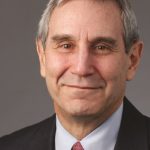
- Richard Edelman
-

- Jimmy Wales
-
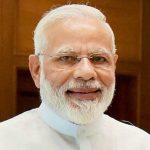
- Narendra Modi
-

- David Nabarro
-
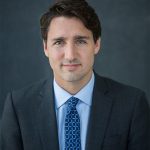
- Justin Trudeau
-
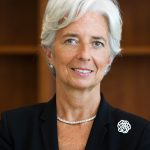
- Christine Legarde
-

- Emanuelle Macron
-

- Ken Roth
-

- Donald Trump
It is necessary that the sense of competitiveness among the major nations of the world does not become a wall between them.
Over the past decades, citizens and workers have been calling for change but too often their pleas have been ignored. Too many politicians become disconnected, refusing to really listen. But that approach can’t and won’t cut it anymore.
If we commit ourselves to make our current globalization welfare sustainable in favor of middle classes, if we commit ourselves to enable our youth, if we commit ourselves to take into consideration long term and complexity of our decisions so we can converge and build a new globalization understandable and good for our people. Resuming this great idea of progress.
As President of the United States, I will always put America first but America first does not mean America alone.
[00:01:17] CRE: This is the Global GoalsCast. Well, as the fact, it is Davos GoalsCast because this is a special episode in which we’re going to be sharing with you our takeaways from the World Economic Forum’s Annual Meeting 2018. We will be sharing with you our observations, the clips that we think represent what happened during the week, and also some of the greatest moments that we thought it’s important to share out with the world.
[00:01:45] EL: And what a week. World leaders warning that globalism is running out of steam and Donald Trump says what’s good for the United States is good for the world. The big conversation here this week relates directly to Global Goal number eight: committing the world to creating decent work and economic growth for all.
[00:02:04] CRE: But actually, Edie it is even bigger than that. David Nabarro, who was the Undersecretary-General for the United Nations to promote the Sustainable Development Goals, stressed to us here in Davos that all the Goals fit together.
[00:02:16] DN: You can’t take different aspects of peoples’ lives and say we will work on them separately because everything really is connected up. And so although there is 17 goals when you study them, you find that everything relates to everything else. If there is no peace, you can’t have prosperity, if there is no prosperity, women and children can’t be healthy if women are not empowered, you can’t have good nutrition.
[00:02:43] CG: All the major leaders here, Edie, talked about this interdependence. How to keep growth going and how to share the benefits better.
[00:02:52] EL: With Donald Trump at one end of the argument saying every country should fight for its own interests and Emmanuelle Macron of France, Narendra Modi of India, and Justin Trudeau of Canada, all in different ways, saying that globalization is broken and that the world needs a new more equitable global system or we will fragment and fail. Joining us later will be two insightful observers of the global economy., Jimmy Wales, founder of Wikipedia, and of course the omnipresent Richard Edelman, you know him, Head of Edelman Communications.
Time to repair the roof when the sun is shining. I’m borrowing from John Fitzgerald Kennedy. He actually focused his speech an opening speech focusing on the next generation. This moment of global growth and European recovery, we have an opportunity to do the difficult things which might otherwise go undone.
[00:03:45] EL: So Claudia, we heard Christine Lagarde open the whole session at the World Economic Forum talking about fixing the roof when the sun is shining. I imagine that means the economies are working but there’s a whole lot that’s not working. Is that hard for world leaders to come here and hear?
[00:04:01] CG: Well as particularly because everybody was so optimistic about the world economy how everything is growing, unemployment numbers have never been you know like lower and I think that there was a lot of optimism matching, you know like, a lot of ‘OK we need to fix the situation. Globalization is not really working. There is a better capitalism that needs to happen’. But I’m not sure we got the answers. We’ll play for you some translated clips from India’s Prime Minister Narendra Modi, also, Canada’s Justin Trudeau, Americas Donald Trump – in his own voice, no translator – and France’s Emmanuelle Macron, which is also translated.
“I see that many societies and countries are becoming more and more focused on themselves. It feels, it feels like the opposite of globalization is happening. Everyone is talking about it in the interconnected world. But we will have to accept the fact that globalization is slowly losing its luster.” Narendra Modi
“Progress of any kind takes hard work. But by thinking big and working together. We will build a better world.” Justin Trudeau,
“When people are forgotten, the world becomes fractured. Only by hearing and responding to the voices of the forgotten, can we create a bright future that is truly shared by all.” Donald Trump
“Unless I give meaning to globalization, if I cannot explain to people that it’s good for them and that it will help them to develop their own lives in 5, 10 years, 15 years-time, they will be the nationalists the extremists who want to get out of the system and they will win and it will happen in every country.” Emmanuelle Macron
[00:05:59] EL: Have a listen to what Ken Roth had to say. He spoke to me the day before Trump spoke and after Modi did.
“Modi came, the Indian prime minister and trumpets, you know, the great economic progress he’s making we talked about inclusive economics but he utterly ignored the very divisive Hindu nationalists who are demonising the Muslim minority in India and who are intent on getting anything but an inclusive political system and I fear that Trump is going to do a bit of the same thing. He’s going say, you know, the American economy is booming and America First is working. But here he is building his government around racism misogyny, xenophobia, Islamophobia. He’s not going to address that stuff.
[00:06:41] CG: So Jimmy, Richard thank you for being with us. You’ve been both here coming to Davos from some time now I think that it’s like 20 years and 10 years or something like that. So what did you make of this year? Richard let’s start with you.
[00:06:54] R: So the big reaction I have is a lot of optimism about the global economy. Every country in the world, with the exception of Brazil, showing strong growth. That’s the first kind of coordinated growth we’ve had since the Great Recession in 08-09. And so a lot of business people were very optimistic. And then on the government leaders, the frame of on one side Macron who talked about the need for a global trading system in which countries give and take. And then President Trump talked about America first in a very profound way and said obviously it’s working because the stock market has hit record highs 84 times and also that the record low unemployment rate for Hispanics and blacks and so Americas a great place to invest. So, it was really quite a contrast between the European view, I guess, and in the American view. The idea of sustainability or of block chain were of course present. But they weren’t as powerful to me as the contrasting messages of Macron and Trump.
[00:08:01] EL: What about you Jimmy? What were your main takeaways from this week?
[00:08:04] J: I mean, with Richard, I saw a lot of optimism which always makes me a little bit nervous because Davos gets too optimistic and we have a financial crisis. You know we always seem to get that wrong.
[00:08:14] CG: Sometimes they hit the theme better than others. Sometimes it’s completely off for me this year talking about a fragmented and fractured world was quite interesting and I felt it was spot on. Is that what you saw during the week? A fragmented type of discourse? People say one thing and then another person doing another?
[00:08:32] J: That’s interesting because I didn’t take the theme as, the conference to be fractured world within the Davos community because I think one of the classic criticisms of Davos is a lot of like-minded people talking to each other, trying to save the world, all being very rich. That’s kind of the classic put down of Davos. But I think outside there is quite a fractured world and I do think it’s something that this community needs to address and to think about is to say ‘look, there are very broken narratives in many countries where people can’t even agree on basic facts and that makes it very hard to make democratic progress, progress on the goals, all those things.’
[00:09:09] CG: So is it because you didn’t feel a lot of this because there is an etiquette that we felt that prime ministers and heads of state were all very worldly in their remarks as opposed to just like say what their national narratives are?
[00:09:23] J: I would have liked to, in the Q & A with Trump, I would have liked Klaus to ask him a question about a perennial Davos issue like climate change. He had an opportunity to not be insulting but just to say you know…
[00:09:38] CRE: What are your views on this?
[00:09:40] EL: Because he did say some interesting things the other day after he came out of the meeting with the Prime Minister of Norway that actually he thought there were some possibilities that we might accept some parts of the Paris Accord because it would be good for business.
[00:09:53] RE: Well it’s almost as if a lot of the countries are just leading and carrying on in sustainability because it suits them. And if it’s China or if it’s India you’re forced by air pollution to do this.
[00:10:07] CG: Maybe I’m biased because I love you both very very much but I do feel that both of the conversation very central to the entire, both of your themes and conversations, were very central to everything I heard in Davos. Fake news. They need to actually be more transparent and factual but also trust & you launch the trust barometer 2018 a couple of days before Davos. Can you talk about the findings and what was the reaction of the Davos man and woman to your findings of trust?
[00:10:38] RE: First, business is actually ahead of NGOs in many markets in terms of trust. Second, there is a clear sense of a return to expertise. Third, this polarization between politics particularly and last, you actually see now the trust is not related either to economics or necessarily to an event like a tsunami or something. It’s actually something that is how the country feels about its institutions and whether there is reliable information which is a perfect segway to Jimmy.
[00:11:09] JW: We’re bringing together wiki style community with paid professional journalists to work together to generate something new in the space of news and really want to be very neutral, very factual, very evidence based. But I think people really do feel that there is a bit of a turning point going on. The quality trusted news brands are beginning to be very successful. New York Times had a huge spike up in subscriptions because the public is really coming to understand that the kind of information we’ve been getting across our social media feed hasn’t been satisfactory. And one of them, for me, one of the interesting findings in the Trust Barometer was that the decline in people’s trust in social media is a source of information.
[00:11:50] RE: People want experts, technical experts, academics, even CEOs those poor benighted fellows are now seen as more credible. And actually most biggest changes +70% of people trust their employer the most. So, news from the company is suddenly something really important because it’s close to home – it’s like the news safe house for the employee. And two thirds of people also said they think business can make money and improve society. The same two thirds said they don’t want companies to wait. They don’t want CEOs to wait, they don’t want to wait for government to move, do stuff.
[00:12:25] EL: We just take the lens back and think about what Modi said to start off the week, the implications of globalization is losing its luster, yet we can’t achieve the global goals without collective actions. So can we achieve them without globalization?
[00:12:40] JW: It all depends on what we mean by that. I would say in general, obviously no, right? We have to have a global outlook for certain issues, like the climate for example. You can’t fix the climate in just one country. It has to be fixed globally. On the other hand, what exactly people mean by globalism is always different in different peoples’ minds. And what Trump put forward today as you know in a more positive way than he has in the past is this, you know, idea of sovereign nations looking after their own interests but looking for deals that are mutually beneficial to everyone. OK, if that’s your view of the rise of nationalism, it doesn’t sound so horrible. As opposed to, I fear, we’ve been seeing we’ll continue to see the rise of a really nasty kind of nationalism which is I’m in it for my country and screw you all not looking for win-win solution.
[00:13:35] RE: So, particulate matter in San Francisco is going up because of coal plants in China. If you want a better symbol of globalization and the need for some degree of harmonization of rules on pollution, that’s it. So, you know, there’s no helping going around the idea that you have to have everyone prospering and having some agreed rules.
[00:13:58] EL: We heard Christine Lagarde saying, it’s time to fix the roof while the sun is shining, which I guess means that there’s something wrong with the roof, right?
[00:14:07] R: I think the gap between rich and poor is huge. And more than that there are new problems. There are more people today, a billion people who are obese and that’s more than malnourished for the first time. That’s a new fact. And so, you know, with again this sort of new prosperity new middle class etcetera. We do have to focus on these emerging issues.
[00:14:30] CG: I want to ask a personal question before closing but so again just because we just closed with President Trump and I think that neither of us was surprised and nevertheless I wonder whether, you know like, there was something that you hope that would be said? I was hoping that there was going to be in that narrative something about gender, for example, that he was going to use this opportunity to talk about that.
[00:14:58] JW: it didn’t feel like a speech he came to give at the World Economic Forum. It was a general speech about his policies and so forth so that was a little disappointing. I did, like you, had hoped you would sort of address the crowd more specifically on things that are of interest here.
[00:15:14] RE: I disagree with my friend on this point. I think Trump’s world view is that every country should follow the example of the United States. It’s free markets, let capitalism go and it’ll fix everything on the basis that it will employ poor people, it will train people just let the business people go.
[00:15:33] EL: He did say free but fair trade.
[00:15:36] RE: Yes fair trade means fair in the sense of America gets a fair share of trade. So for me the vision part of America that really has to be reinforced is about values and democracy and rights and freedom and, again, it’s the most perfect expression. Business does that.
[00:16:01] CG: Last year Edie you and I were talking about like probably our highlight was having heard a global leader with President Xi coming on actually just like stating something so grand and so like profound and.
[00:16:14] RE: I am sure that his view is ‘I did exactly that and that you should follow the example of America and deregulate and have markets run and will somehow come to the right solution’ as opposed to this grand version or vision of harmony and a plan. And so it’s two fundamentally different views of the world.
[00:16:34] EL: Interesting. A different world view than perhaps a lot of people here would naturally find.
[00:16:38] RE: It’s opposite of a Davos Man or woman. It is a, you know, hard charging, you know, almost a small businessman approach to commerce and it’s a view.
[00:16:50] CG: Thank you so much Richard, Jimmy for joining us here to wrap up the week here in Davos. We’ll let you guys go home and collapse.
[00:16:57] CG: And have a great year.
[00:17:01] EL: So all of that, all of what they said, directly ties the global goals to reach the goal, the world needs steady growth more equal distribution and a relief from wars. Whether it be those be wars with guns or trade wars.
[00:17:15] CG: But the phrase ‘we are going in the wrong direction’ was repeated a number of times.
[00:17:21] EL: I heard a lot of people who graced the studio here this week talking about climate change, talking about very specifically moving away from coal, talking about fixing the way we produce food, talking about fixing the way we eat food and the way we consume. I heard a lot about the positive aspects of block chain. I also heard a lot about the negative effects that the block chain that cryptocurrencies could bring just in terms of adding heat. I heard there’s another great comment from Kevin Delaney, the editor of Quartz said that for him this year at Davos, climate change and robots are probably going to kill us but women and the block chain are going to save us.
[00:18:07] CG: I also think that a big chunk of a conversation was regarding how we bring the 50 percent of the world to be in a better place. Meaning talking about women, talking about gender. I think that there was the same amount of conversations happening at the World Economic Forums, at side events discussing gender, girl empowerment, education. Where a lot of the players that were part of those conversations were not members of the World Economy Forum, but overall I think that the need to campaign what I heard that was interesting was not only how much momentum it created but also that we have to watch out that we’re not overdoing it because there might be a backlash on reaction about like. And I did feel it even myself about like how people didn’t want to have one-to-one meeting with me. You know like overall just like being very careful and very cautious about like well you know like now we have to be over cautious & over careful so…
[00:19:03] EL: I also heard some stories about men still behaving quite badly. So I do think we have to be careful about that.
[00:19:03] CG: Not only the President’s Club story broke here while we were in Davos with you know like the London story making it the most popular story on the Financial Times in decades.
[00:19:20] EL: One final point for me. I spoke to Alicia [INAUDIBLE] who is talking about, OH FOR THE LOVE OF GOD can’t get it right, who is saying to me that women are the face of poverty in Latin America. For every hundred men who are in extreme poverty, there’s a 118 women.
[00:19:37] CG: All right. OK so I think that we are going, this is a wrap. We launched the Global GoalsCast in the World Economic Forum this year. We’re liking what we’re seeing with these people care more about these issues. We want to provide a platform to identify the champions that are making progress to make sure that we talk to the people that are making the effort because getting to a better world requires a lot of effort. And we’re going to make sure that we will continue telling the story of those champions being the individuals, citizens, companies or governments that are making it. So, that was Edie Lush. And I’m Claudia Romo Edelman. This was the Davos GoalsCast part of the Global GoalsCast. See you next time.
[00:20:19] EL: To make sure you don’t miss any of our upcoming episodes, subscribe to us at Apple podcasts or wherever you get your podcasts. While you’re there, you can also check out our dramatic episode about polar adventurers, Robert and Barney Swan, father and son team that walked to the South Pole using only renewable energy. And, finally, for the latest news and developments or to share your own stories, follow us on Twitter, Instagram and Facebook @Global GoalsCast.
CREDITS: Thank you to our partners at the United Nations, UNICEF, World Food Programme, UN Foundation, SDG Action Campaign of the Office of the UN Development Program International Office for Migration, International Development Law Organization, Malaria No More, Rollback Malaria, Project Everyone and Pvblic Foundation. We are also grateful for the support of Hub Culture, SAS, Cultural Intelligence, Freuds Communication, Saatchi & Saatchi, Action Button and of course CBS News Digital. We want to recognize individual champions who have been supporting Global GoalsCast: David Sabel, David Jones, Will Lewis and Seven Hills. And then to our amazing advisory board: Jacob Weisberg, Steve Rubel, Kate Stanners, Dali Schonfelder, Matthew Freud, Christy Tanner, Fon Mathuros Chantanayingyong, Sergio Fernandez de Cordova, Dinesh Paliwal and Scarlett Curtis
And a special thank you to HARMAN as the official sound of Global GoalsCast. And finally none of this would have been possible without the support of our main patron and Claudia’s husband Richard Edelman who has been the angel behind Global GoalsCast.
